Often known as one of the greatest rulers that India has seen, Abu’l-Fath Jalal-ud-din Muhammad Akbar popularly known as Akbar the Great, was the third Mughal emperor, who ruled over India from 1556 to 1605.
His reign significantly influenced the course of Indian history, and brought several changes. During his rule, the Mughal empire tripled in size and wealth. He created a powerful military system and instituted effective political and social reforms.
His reign also marked the unification of north India after a long period, which no other ruler had managed to achieve. One of the reasons why Akbar is regarded as a great ruler and is loved by all is because he was considered to be an embodiment of the idea of Hindu-Muslim unity during Medieval age.
In this article, we will be taking a look at some of the unknown facts that you might have not known about this great ruler.
Unknown Facts About Akbar
- Akbar was born on 15 October 1542 to Mughal Emperor Humayun and queen Hamida Bano at Umerkot (Sindh).
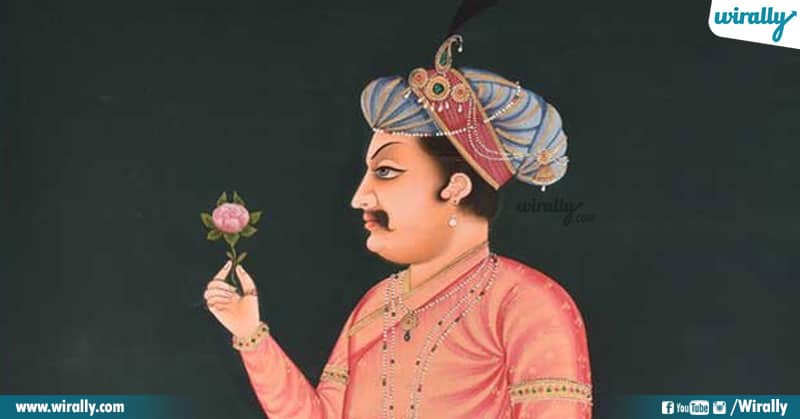
- After the death of his father Humayan, Akbar was made the shahanshah. He was only 13 at that time. Bayram Khan became his teacher and guardian of his empire.
- Just after the declaration of Akbar as a king, Hindu Samrat Hemu attacked the Mughals and defeated them. But later with the help of Bairam Khan, Akbar was able to defeat him in Second Battle of Panipat.
- Akbar’s liberal attitude towards other religions helped him to easily conquer other states. He was able to bring other states in his empire.
- Akbar married his uncle’s (Hindal Mirza) daughter Ruqaiya Sultan Begum at the age of 14 years just before ascending the Mughal throne.
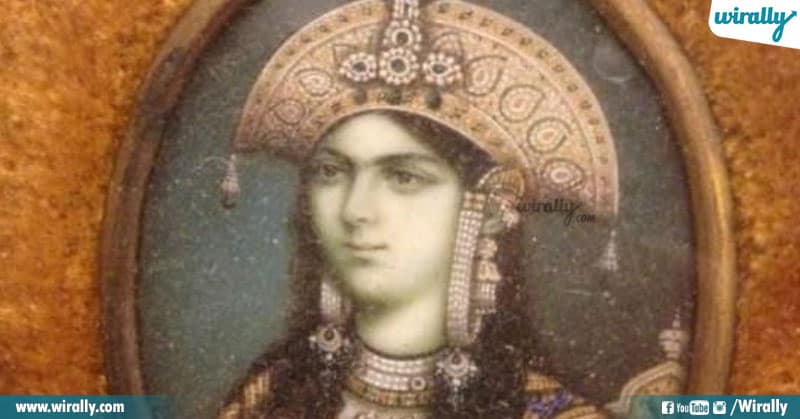
- To support the theory of religious tolerance followed by Akbar, there is accepted fact that Jazia tax (or Jizya tax) which was imposed on non-Muslims by earlier Mughal emperors was removed by Akbar
- Akbar organised his army as well as the nobility by means of a system called the mansabdari. The mansabdars were divided into 33 classes. The top three commanding ranks, ranging from 7000 to 10000 troops. Under this system every army officer was assigned a rank called mansab from 10 to 5000. 10 being the lowest rank and 5000 being the highest. Although for some nobles rank of 7000 was also given as highest rank.
- Akbar created a very efficient bureaucracy system to control his empire. He appointed mansabars to look after the small regions.
- Akbar was keenly interested in learning all warfare techniques and was totally disinterested in reading or writing. He was in fact not at all educated yet he had a keen interest in gaining knowledge about many things.
- Akbar made many religious matrimonial alliances through which he sent a message of unity and togetherness.
- Akbar got a temple constructed for Jodha in his palace, even though there was a lot of opposition for the same
- Akbar talked to general people and heard their woes at DIWAN-E-AAM.
- Akbar had a great parliament with many talented and great people. There were nine jewels in his parliament- Abdul Rahim, Abdul Fazal, Birbal, Faizi, Hamim Human, Raja Man Singh, Shaikh Mubarak, Tansen, Todar Mal.
- Many architectural masterpieces were built during his rule. Agra Fort (1565), Lahore Palace(1572), Fatehpur Sikri, Bulan Darwaza and Allahabad fort (1583) were built during his time.
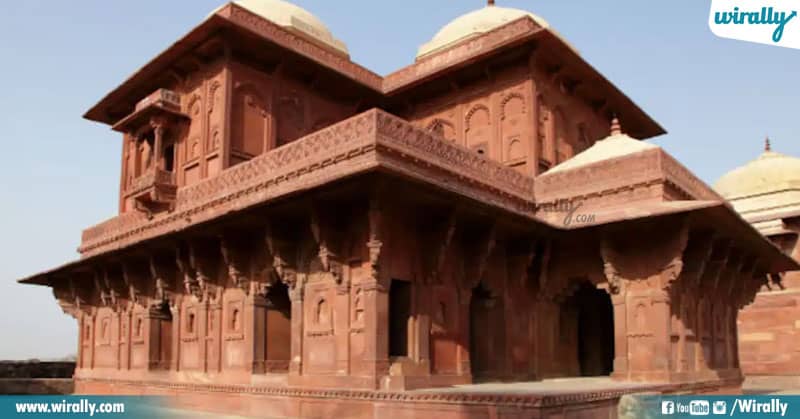
- Akbar remained illiterate and uneducated all his life.
- Akbar is known to be a great hunter who went on his hunts alone. His hunts were accompanied only by loyal trustees, and more often than not, Akbar went alone.
- It is said that Akbar slept only 4.5 hours a day, 3 hours at midnight and rest in afternoon. He did not want to waste his precious life in sleeping and was a workaholic.
- Akbar made ‘Marriage Registration’ compulsory in his rule and girl minimum age was 14 and boy age 16 for marriage.
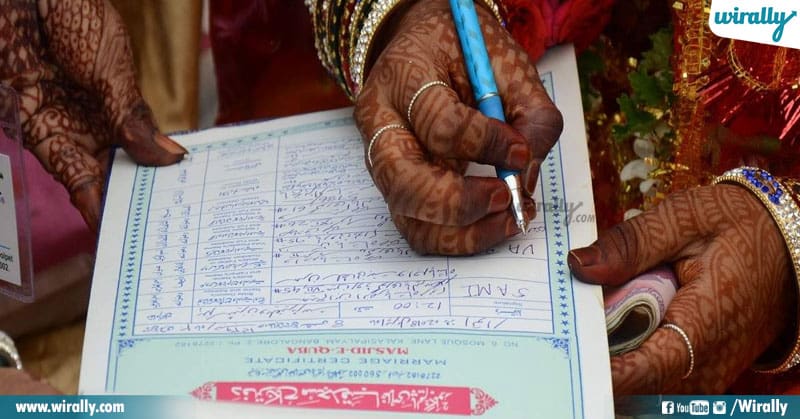
- Akbar banned Cousin marriages and Child marriages.
- Akbar had 300 legal wives and 5000 concubines.
- He was an admirer of Meera Bai and visited the Krishna Temple in disguise to listen to her Bhajans.
- Akbar banned Sati, encouraged widow remarriage and raised the age for child marriages.
- During Akbar’s reign, the Mughal economy grew manifold and was prosperous. Trade was widely encouraged under his rule and Akbar attempted to secure it by occupying strategically important regions like Lahore and Multan to engage in trade with the Safavid dynasty.
- The biography of Akbar is known as Akbarnama which literally means Book of Akbar. It was written by Abul Fazl.
- A new religion Din-i Ilahi was propounded by Akbar in 1582 AD to merge the best elements of the Islam and Hinduism.
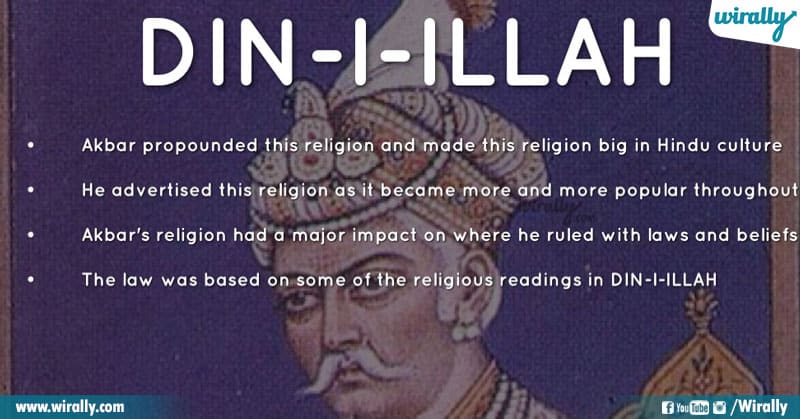
- Arts, literature, culture, society, agriculture, trade, business flourished during Akbar reign. During Akbar’s era, India has well diversified economy. There was cultivation of large varieties of staple food crops such as wheat, rice, gram, barely, pulses, bajra etc. Cash crops like cotton, indigo, oil seeds and sugarcane etc were also sown to great extent.
- There was a time when Akbar’s relation with Bairam Khan turned bitter, as Akbar wanted to take the power in his own hand wanted more representation in state affairs. The tensions between the both had risen so much that Akbar dismissed the services of Bairam Khan.
- Bairam Khan then turned rebellious, and was defeated by Mughal army near Punjab. Akbar forgave him for his crime and gave option either to join royal court or to proceed his journey to Mecca. Bairam Khan chooses the latter but was assassinated on his way at Patan in Gujarat.
Also Read: Unknown Facts About The Taj Mahal


















